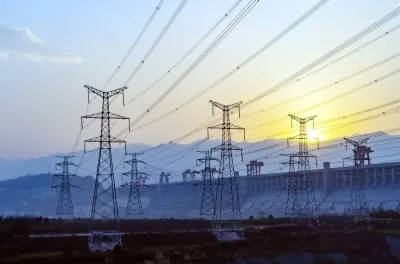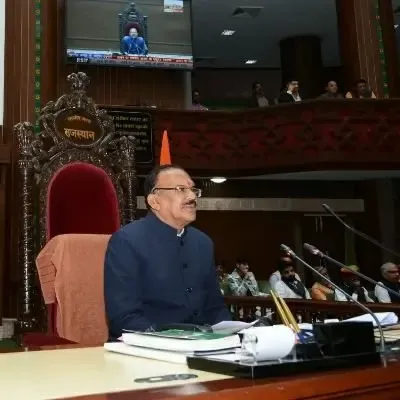Can Electricity Futures Contracts Help Control Power Costs?

Synopsis
Key Takeaways
- Electricity futures contracts allow businesses to lock in future prices.
- They serve as a hedge against price volatility.
- Applicable for consumers with over 60,000 units of electricity usage.
- Designed for hedging, not speculation.
- Support investment in the electricity sector.
New Delhi, July 26 (NationPress) Shriram Krishnan, the Chief Business Development Officer at the National Stock Exchange (NSE), stated on Thursday that electricity futures contracts can significantly aid businesses in effectively managing and controlling their power expenses.
In a detailed discussion with IANS, Krishnan elaborated that these contracts allow buyers to secure electricity prices for upcoming dates.
"This mechanism aids in establishing electricity costs in advance. If future spot electricity prices exceed the locked-in rate, businesses can benefit from the difference through cash-settled monthly electricity futures contracts," he explained.
"This presents an excellent opportunity for businesses and other electricity users to manage power costs proficiently," he further stated.
Krishnan highlighted that with the growing global focus on environmental, social, and governance (ESG) factors, there is a noticeable impact on electricity pricing.
He provided an example, indicating that if solar energy becomes predominant, electricity prices could decrease.
Conversely, should power demand surge beyond the anticipated supply, prices could escalate. In such scenarios, electricity futures contracts serve as a crucial hedging instrument.
Addressing concerns regarding speculation, Krishnan clarified that these contracts are not intended for speculative trading but rather for genuine hedging needs.
"Any organization consuming over 60,000 units can take advantage of this," he mentioned.
"For businesses where electricity constitutes a significant expense, this tool can provide substantial benefits," he added.
Earlier this month, the NSE announced it had received authorization from the Securities and Exchange Board of India (SEBI) to introduce monthly electricity futures contracts.
The exchange articulated its intention to provide a dependable risk management resource for market participants to mitigate price fluctuations in the electricity sector.
Moreover, it aims to stimulate capital investment throughout the electricity value chain, encompassing generation, transmission, distribution, and retail.









